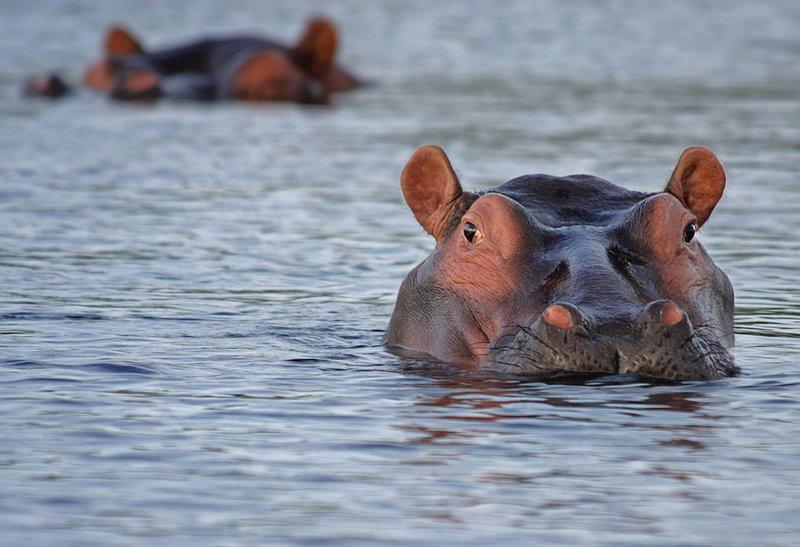LONDON – It has been a remarkable journey for the ‘singing nuns’ of Drapchi prison, four of whom are in Britain to raise awareness of the Tibetan plight, just as the world’s attention is turning to August’s Beijing Olympics.
Jailed by the Chinese for civil disobedience in 1989, the Tibetan nuns secretly recorded songs describing the beatings they received in prison, praising exiled spiritual leader, the Dalai Lama, and calling for China to leave Tibet. Now they are raising their voices again, this time in Britain, joining a growing international chorus demanding action by China on human rights.The 14 nuns, jailed while some were still teenagers, were discovered recording their songs by prison guards in Drapchi prison on the outskirts of the Tibetan capital Lhasa, and their sentences were extended by between five and nine years.But the first cassette tape was smuggled out of the prison and out of the Himalayan region, making its way to exile communities across the world.”It is not very big, what we did.We just sang songs, peacefully, for the love of His Holiness the Dalai Lama and for a free Tibet,” said Ngawang Sangdrol, who spent 10 years in Drapchi prison.”They say we want to destroy the government, but how can songs destroy a government?” she asked.On Saturday, Tibetan communities commemorated the 1959 abortive uprising against Chinese rule which forced the Dalai Lama into exile in India.The nuns led a march from the Chinese embassy to the office of Prime Minister Gordon Brown, where a delegation including Sangdrol presented a petition asking the British leader to meet with the Dalai Lama, who is due to visit Britain in May.There are 119 known Tibetan political prisoners currently being held by China, according to the Tibetan Centre for Human Rights and Democracy.Most of those are monks and nuns.China is facing a growing chorus of opposition as the Olympics keeps Beijing in the international spotlight.It has controlled Tibet since People’s Liberation Army troops marched in in 1950 and considers Tibet an integral part of its territory, calling the Dalai Lama a “separatist”.’DON’T BE DISHEARTENED’ One of the ‘singing nuns’, Ngawang Lochoe, died in custody in February 2001.Seven remain in Tibet, while others trekked through snow for ten days to reach Nepal and eventual exile in India, the United States and Europe.The three other women now in Britain – Gyaltsen Drolkar, Namdrol Lhamo and Phuntsog Nyidron – settled in Belgium and Switzerland, and spoke through an interpreter who struggled to interrupt their rapid-fire Tibetan.Asked for a message to send to Tibetans, the four women, wearing long dresses and sitting cross-legged, proud but slightly nervous, spoke fervently among themselves.”Keep the spirit alive, know the world is watching, and don’t be disheartened,” was the concise version of their message, delivered by the interpreter.Dalha Tsering, from the Tibetan Community in Britain, which co-ordinated the nuns’ reunion, said the women’s story was “one of the resilience of the human spirit”.Critics say China continues to repress Tibetans’ religious aspirations, especially their veneration for the Dalai Lama, who won the Nobel Peace Prize in 1989.Periodic rioting by monks has been crushed.China says it has spent billions of dollars developing the impoverished Himalayan region, and raised its living standards.And it has repeatedly said that it wants to keep politics out of the August Games.The Dalai Lama, who says he wants autonomy for Tibet not outright independence, said in January that during the Games Tibet supporters should protest peacefully in China against Beijing’s rule.But he has said he is not calling for a boycott.”On the issue of the Beijing Olympics, it is common knowledge that his Holiness the Dalai Lama has consistently supported the right of China to host the 2008 Olympic Games,” said a statement released from his home in Dharamsala on Saturday.Five groups who say they represent tens of thousands of exiled Tibetans are planning a march from India into Tibet ahead of the Games as part of a series of actions to try and embarrass China into ending its rule in the Buddhist region.Asked about the Olympics, Sangdrol said in the faltering English she has learned since settling in the United States, that the Games should go to “an honest country”.”In China there is no human rights and there is no religious speech, there is even no freedom of speech,” she said.Nampa-Reuters (Reporting by Alastair Sharp, editing by Clar Ni Chonghaile and Myra MacDonald)Now they are raising their voices again, this time in Britain, joining a growing international chorus demanding action by China on human rights.The 14 nuns, jailed while some were still teenagers, were discovered recording their songs by prison guards in Drapchi prison on the outskirts of the Tibetan capital Lhasa, and their sentences were extended by between five and nine years.But the first cassette tape was smuggled out of the prison and out of the Himalayan region, making its way to exile communities across the world.”It is not very big, what we did.We just sang songs, peacefully, for the love of His Holiness the Dalai Lama and for a free Tibet,” said Ngawang Sangdrol, who spent 10 years in Drapchi prison.”They say we want to destroy the government, but how can songs destroy a government?” she asked.On Saturday, Tibetan communities commemorated the 1959 abortive uprising against Chinese rule which forced the Dalai Lama into exile in India.The nuns led a march from the Chinese embassy to the office of Prime Minister Gordon Brown, where a delegation including Sangdrol presented a petition asking the British leader to meet with the Dalai Lama, who is due to visit Britain in May.There are 119 known Tibetan political prisoners currently being held by China, according to the Tibetan Centre for Human Rights and Democracy.Most of those are monks and nuns.China is facing a growing chorus of opposition as the Olympics keeps Beijing in the international spotlight.It has controlled Tibet since People’s Liberation Army troops marched in in 1950 and considers Tibet an integral part of its territory, calling the Dalai Lama a “separatist”. ‘DON’T BE DISHEARTENED’ One of the ‘singing nuns’, Ngawang Lochoe, died in custody in February 2001.Seven remain in Tibet, while others trekked through snow for ten days to reach Nepal and eventual exile in India, the United States and Europe.The three other women now in Britain – Gyaltsen Drolkar, Namdrol Lhamo and Phuntsog Nyidron – settled in Belgium and Switzerland, and spoke through an interpreter who struggled to interrupt their rapid-fire Tibetan.Asked for a message to send to Tibetans, the four women, wearing long dresses and sitting cross-legged, proud but slightly nervous, spoke fervently among themselves.”Keep the spirit alive, know the world is watching, and don’t be disheartened,” was the concise version of their message, delivered by the interpreter.Dalha Tsering, from the Tibetan Community in Britain, which co-ordinated the nuns’ reunion, said the women’s story was “one of the resilience of the human spirit”.Critics say China continues to repress Tibetans’ religious aspirations, especially their veneration for the Dalai Lama, who won the Nobel Peace Prize in 1989.Periodic rioting by monks has been crushed.China says it has spent billions of dollars developing the impoverished Himalayan region, and raised its living standards.And it has repeatedly said that it wants to keep politics out of the August Games.The Dalai Lama, who says he wants autonomy for Tibet not outright independence, said in January that during the Games Tibet supporters should protest peacefully in China against Beijing’s rule.But he has said he is not calling for a boycott.”On the issue of the Beijing Olympics, it is common knowledge that his Holiness the Dalai Lama has consistently supported the right of China to host the 2008 Olympic Games,” said a statement released from his home in Dharamsala on Saturday.Five groups who say they represent tens of thousands of exiled Tibetans are planning a march from India into Tibet ahead of the Games as part of a series of actions to try and embarrass China into ending its rule in the Buddhist region.Asked about the Olympics, Sangdrol said in the faltering English she has learned since settling in the United States, that the Games should go to “an honest country”.”In China there is no human rights and there is no religious speech, there is even no freedom of speech,” she said.Nampa-Reuters (Reporting by Alastair Sharp, editing by Clar Ni Chonghaile and Myra MacDonald)
Stay informed with The Namibian – your source for credible journalism. Get in-depth reporting and opinions for
only N$85 a month. Invest in journalism, invest in democracy –
Subscribe Now!










